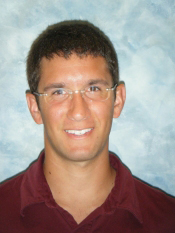Scientists Ready to Handle Increased Data of Large Hadron Collider’s Current Run
Physicist Alexx Perloff, a graduate student at Texas A&M University working on the Compact Muon Solenoid (CMS) experiment, is using data from the first run of the Large Hadron Collider for his thesis, which he plans to complete this year. When all is said and done, it will have taken Perloff a year and a half to collect the computing time necessary to analyze all the information he needs — not unusual for a thesis.

But had he had the computing tools LHC scientists are using now, he estimates he could have finished his particular kind of analysis in about three weeks — the equivalent of having 26 times the computing resources. Although Perloff represents only one scientist working on the LHC, his experience shows the great leaps scientists have made in LHC computing by democratizing their data, becoming more responsive to popular demand and improving their analysis software.
Read more about the deluge of data and how LHC scientists like Perloff are dealing with the rush in the complete article originally appearing in the July 2015 issue of Symmetry magazine.
Learn more about Perloff and his research with Texas A&M physicist Richardo Eusebi and the Texas A&M Collider Physics group.
Read a Battalion feature highlighting Perloff’s work and Texas A&M’s role in CMS.
# # # # # # # # # #
About Research at Texas A&M University: As one of the world’s leading research institutions, Texas A&M is at the forefront in making significant contributions to the storehouse of knowledge, including that of science and technology. Research conducted at Texas A&M represented annual expenditures of more than $820 million in FY 2013, ranking Texas A&M in the top 20 of the National Science Foundation’s most recent survey of research and development expenditures among U.S. colleges and universities. Recently reported FY 2014 research expenditures exceed $854 million. That research creates new knowledge that provides basic, fundamental, and applied contributions resulting in many cases in economic benefits to the state, nation and world. To learn more, visit http://research.tamu.edu.
-aTm-
Contact: Shana K. Hutchins, (979) 862-1237 or shutchins@science.tamu.edu; Alexx Perloff, aperloff@tamu.edu; or Dr. Ricardo Eusebi, (979) 458-7907 or eusebi@physics.tamu.edu
The post Scientists Ready to Handle Increased Data of Large Hadron Collider’s Current Run appeared first on College of Science.
